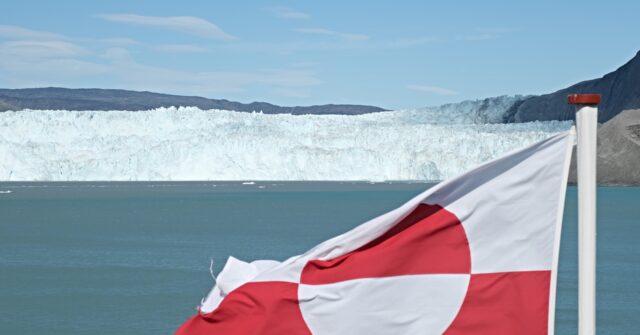In a recent post on Truth Social, President-elect Donald Trump emphasized the importance of American ownership of Greenland, currently a territory of Denmark, deeming it an “absolute necessity” for national security and freedom. This statement coincided with his announcement of Ken Howery as his candidate for U.S. Ambassador to Denmark. Trump praised Howery’s credentials, highlighting his entrepreneurial background and experience as a former ambassador to Sweden during Trump’s first term. He noted Howery’s success in enhancing defense and economic collaboration between the U.S. and Sweden, asserting that his expertise would be instrumental in serving American interests abroad. Trump underscored the strategic importance of Greenland, framing its ownership as crucial not only for the United States but for global security.
Trump has previously expressed interest in acquiring Greenland, as shown during his first administration when he explored the possibility of a purchase, leading to a notable cancellation of a state trip to Denmark after Danish officials reportedly dismissed the idea of selling the territory. His statements reflect a continued focus on the strategic assets and resources linked to Greenland, invoking discussions about national security and geopolitical influence. The acquisition of Greenland, as proposed by Trump, aligns with a broader narrative of enhancing U.S. territorial control in strategically significant regions, suggesting a willingness to engage in foreign negotiations that bolster American interests.
In response to Trump’s remarks, Múte Egede, the Prime Minister of Greenland, firmly asserted that “Greenland is ours” and emphasized that the territory is “not for sale” and must maintain its sovereignty. This declaration highlights the ongoing sentiment in Greenland against any perception of trading national sovereignty for economic or strategic incentives. Egede’s comments resonate with a historical context in which Greenland has fought for its autonomy and identity, emphasizing the importance of self-determination and the potential repercussions of external offers or pressures.
Trump’s announcement also comes on the heels of his demands to Panamanian authorities regarding shipping fees in the Panama Canal, showcasing a broader theme of reclaiming perceived American interests that have been diluted over time. His approach appears to advocate for a more hands-on involvement in foreign territories and trade practices, reflecting a willingness to leverage diplomacy and international relations in favor of U.S. dominance. This willingness raises questions about how such a stance might impact both American diplomatic relationships and the geopolitical landscape, especially regarding small or dependent territories like Greenland.
The prospect of U.S. ownership of Greenland not only raises political eyebrows but also invites broader discussions about the implications of such territorial acquisitions in modern governance. As nations navigate complex interdependencies and global dynamics, the discussion surrounding Greenland serves as a symbolic representation of power, national identity, and the intricate dance of sovereignty in international relations. Trump’s continued emphasis on the necessity of Greenland underlines the ongoing conversations about territorial integrity and how historical contexts shape current political motivations.
In summary, Trump’s assertions about Greenland reflect a broader narrative centered on national security and geopolitics, framed through the lens of American exceptionalism and strategic priorities. The reactions from Greenland’s leadership serve as a reminder of the importance of sovereignty and self-determination amid proposals that envision alterations to national boundaries or control. As the discourse evolves, it remains to be seen how this dialogue will shape future U.S.-Greenland relations and influence the political landscape during Trump’s upcoming term. The intersection of national interests and the quest for autonomy continues to be a pivotal theme in the governance of regions with complex historical ties to larger powers.

